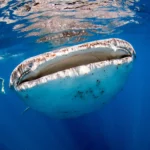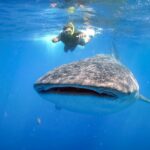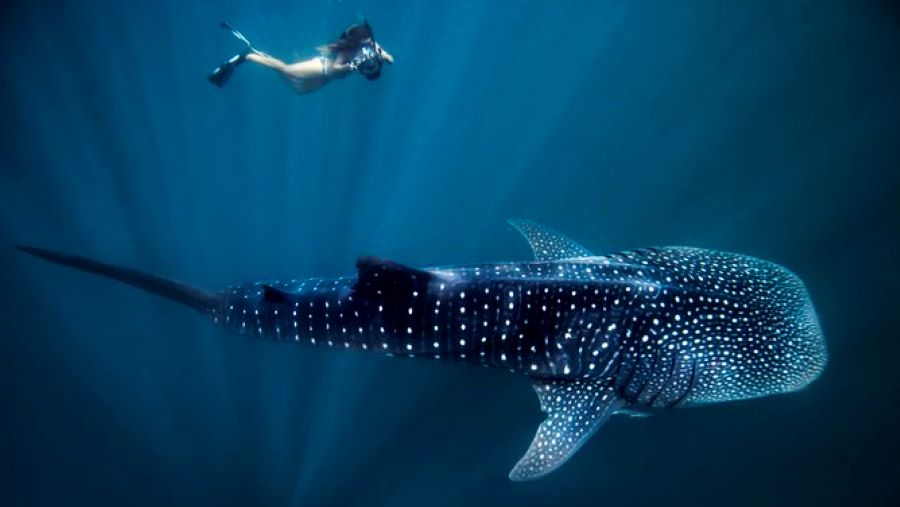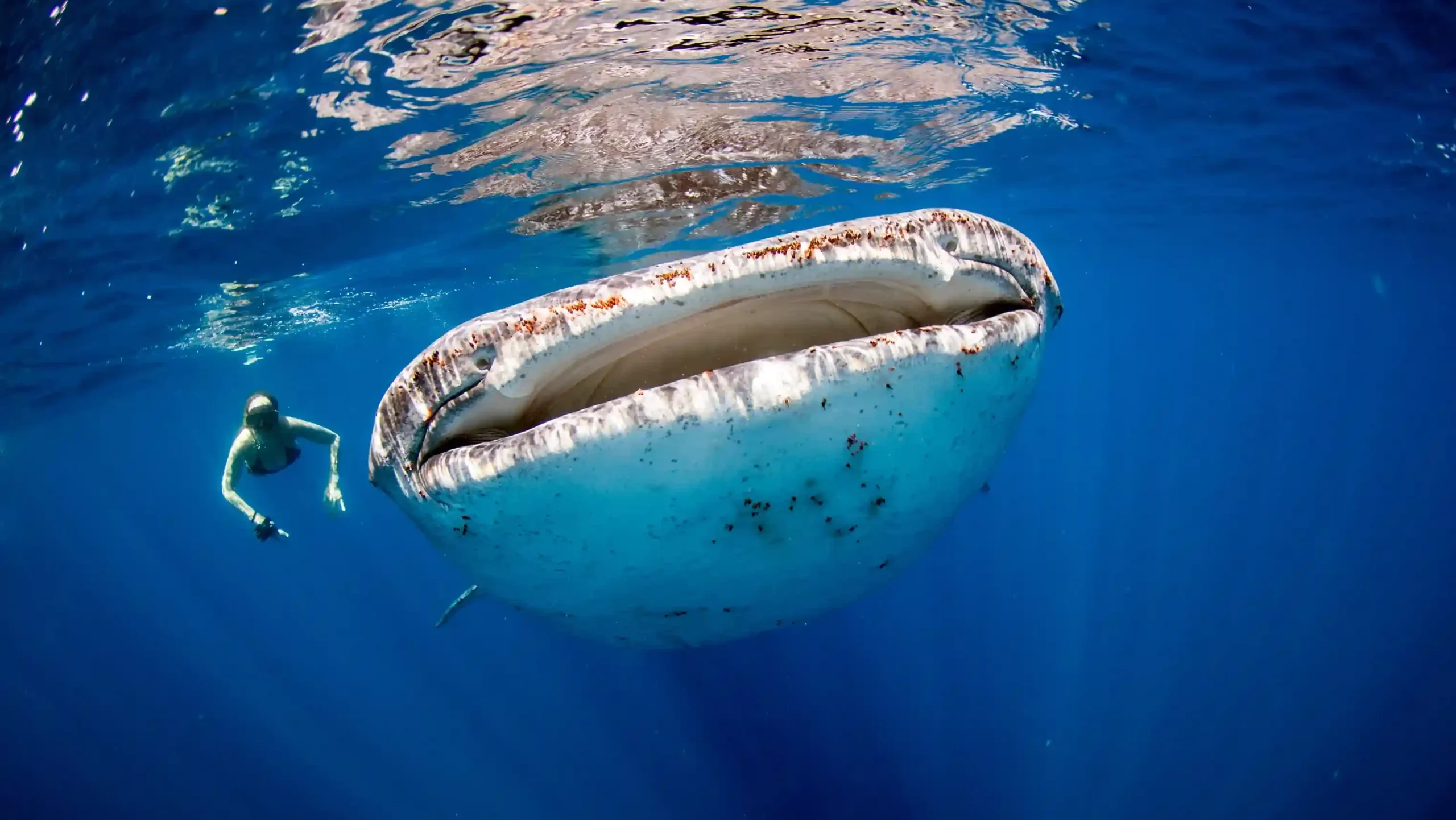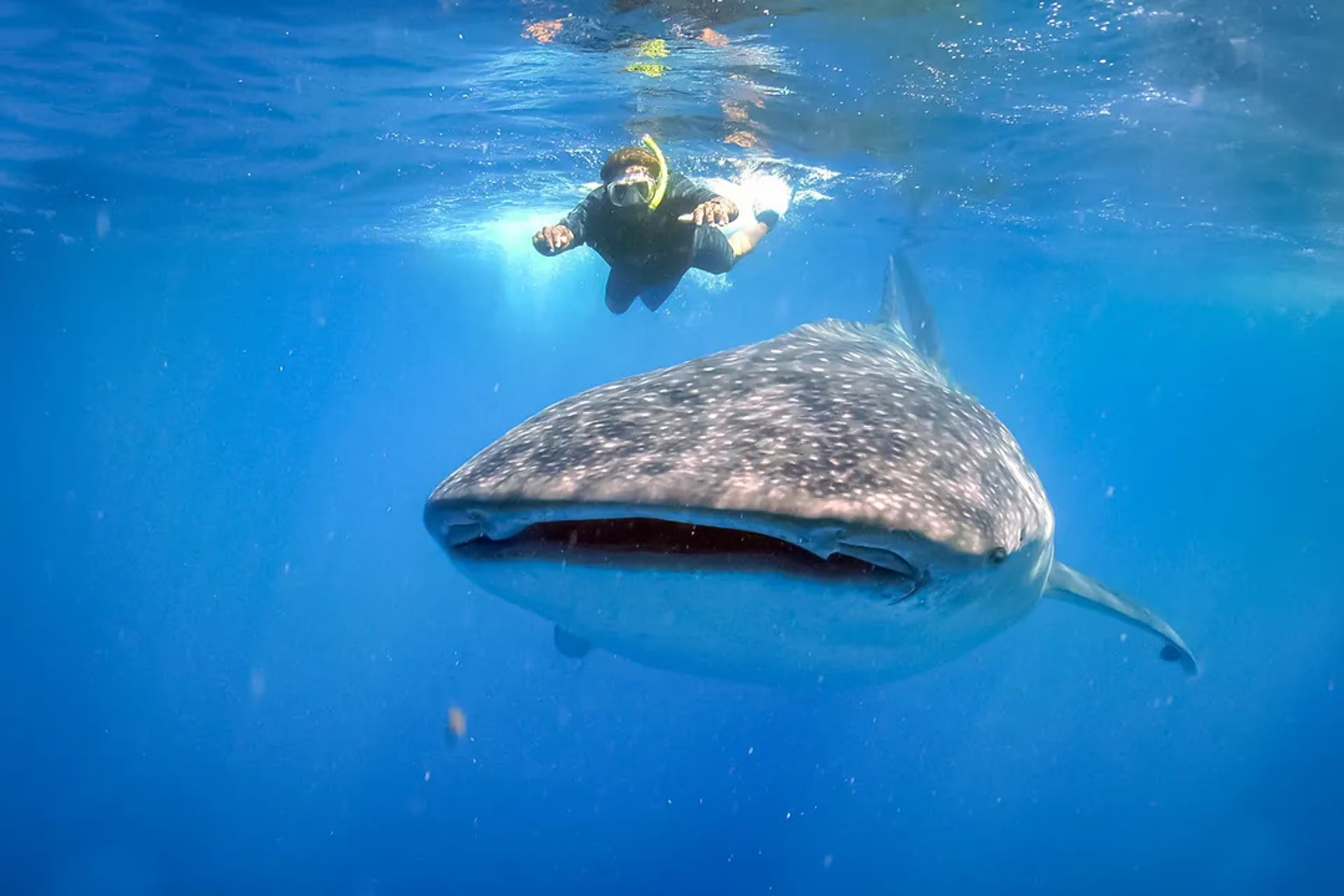If you’re searching for a travel experience that’s thrilling, humbling, and far from the crowds, look no further than a Saleh Bay whale shark tour. Tucked away in the remote island of Sumbawa, Indonesia, Saleh Bay offers one of the most unique and intimate wildlife experiences in Southeast Asia—swimming alongside the largest fish in the ocean, the magnificent whale shark.
Unlike more famous destinations that have become overrun with boats and tourists, the Saleh Bay whale shark tour gives you a front-row seat to one of nature’s greatest shows—in a setting that still feels untouched and authentic. Whether you’re an ocean enthusiast, a conservation supporter, or simply someone seeking a once-in-a-lifetime adventure, this guide will walk you through everything you need to know before embarking on this unforgettable journey.
Where Is Saleh Bay?
Saleh Bay (Teluk Saleh) is located in the northern part of Sumbawa Island, part of West Nusa Tenggara Province in Indonesia. Enclosed by mountainous terrain and flanked by the towering presence of Mount Tambora, this expansive bay is known not only for its natural beauty but also for being one of the few reliable places to encounter whale sharks in the wild.
Stretching over 2,000 square kilometers, Saleh Bay is more than just a scenic body of water. It is a vibrant marine ecosystem that supports a wide variety of marine life, making it an ideal feeding ground for whale sharks—especially near the traditional fishing platforms known as bagan.
What Makes a Saleh Bay Whale Shark Tour Unique?
There are several reasons why Saleh Bay whale shark tours are becoming increasingly popular among eco-conscious travelers and marine wildlife enthusiasts:
- Sustainable tourism model: Whale shark encounters here are developed in cooperation with local fishing communities, creating a model of tourism that benefits both people and the environment.
- Authentic experience: No crowded docks, no large commercial boats, and no artificial feeding. Just you, a small group, and the whale sharks in their natural habitat.
- High chance of sightings: During peak season, sightings are frequent and reliable, with some tours reporting 80–90% success rates.
- Ethical encounters: There are strict no-touching and no-baiting policies in place to ensure the safety and well-being of the whale sharks.
The Role of Bagan and Local Fishermen
The backbone of the Saleh Bay whale shark tour is the traditional Indonesian bagan—floating fishing platforms that use lights to attract fish at night. These lights, combined with the abundance of small baitfish, draw in whale sharks looking for an easy meal.
Over time, local fishermen began noticing these gentle giants circling their platforms regularly. Rather than driving them away, they chose to protect and coexist with them. Today, many of these fishermen work directly with eco-tour operators to guide visitors and support conservation efforts. This unique partnership ensures that both the community and marine life benefit from tourism.
Best Time to Join a Saleh Bay Whale Shark Tour
While whale sharks may occasionally be spotted throughout the year, the best time to take a Saleh Bay whale shark tour is during the dry season: April to October. During this period:
- Water visibility is clearer
- Sea conditions are calmer
- Whale shark activity is more predictable
Early morning trips are most common, often beginning just before sunrise. This is when whale sharks are most active around the bagan platforms.
What to Expect During the Tour
A typical Saleh Bay whale shark tour starts in one of the nearby villages such as Labuan Jambu, Kilo, or Dompu. These tours usually involve:
- Early departure by boat
- Arrival at a floating bagan platform
- Observing whale sharks from the boat first
- Entering the water for snorkeling once it’s safe
- Spending 30 minutes to an hour swimming alongside whale sharks
- Returning to shore for breakfast or debriefing
All necessary gear, including snorkels and fins, is usually provided. Life vests and trained guides ensure safety throughout the experience.
Is Swimming with Whale Sharks Safe?
Yes! Whale sharks are known as the gentle giants of the sea. They are filter feeders, meaning they eat plankton and tiny fish—not humans. Their behavior is calm and predictable, making them safe to swim with, especially under the supervision of experienced guides.
However, it’s crucial to follow ethical guidelines during your Saleh Bay whale shark tour:
- Maintain a respectful distance (at least 3–4 meters)
- Do not touch or chase the animals
- Avoid using flash photography
- Do not wear regular sunscreen—only use reef-safe products
- Limit your time in the water to reduce stress on the animals
By respecting these rules, you help preserve the natural behavior of whale sharks and ensure that others can enjoy the same experience in the future.
How to Get to Saleh Bay
To reach Saleh Bay, most travelers start their journey from Bali or Lombok, flying into one of two airports in Sumbawa:
- Bima Airport (BMU) – closest to Dompu and Labuan Jambu
- Sumbawa Besar (SWQ) – more convenient for access from Lombok
From the airport, you can arrange private transfers or local transportation to the whale shark tour departure point. Many eco-tour operators provide packages that include airport pickup, accommodations, and meals along with the tour itself.
Where to Stay
While the Saleh Bay area is not home to luxury resorts (yet), you will find plenty of comfortable homestays, guesthouses, and eco-lodges run by friendly locals. These places offer:
- Clean rooms with basic amenities
- Authentic local cuisine
- Direct access to tour starting points
- A deeper connection to local culture
Staying near the coast also allows you to explore fishing villages, local markets, and maybe even watch traditional weaving demonstrations.
What to Bring for Your Whale Shark Tour
To ensure a smooth and enjoyable experience, pack the following items:
- Snorkeling gear (optional, as most tours provide it)
- Waterproof camera or GoPro
- Dry bag for valuables
- Rash guard or swim shirt
- Reef-safe sunscreen
- Towel, water, and light snacks
- Motion sickness pills if you’re prone to seasickness
Beyond the Tour: Exploring More of Sumbawa
After your Saleh Bay whale shark tour, why not explore more of what Sumbawa has to offer?
- Climb Mount Tambora: Experience one of the most powerful volcanic sites in history.
- Discover Moyo Island: A paradise for snorkeling, waterfalls, and untouched beaches.
- Surf at Lakey Peak: A mecca for surfers seeking challenging waves.
- Visit local villages: Learn about Sumbawa’s culture through crafts, music, and traditional ceremonies.
Combining adventure, culture, and nature makes your trip even more meaningful and memorable.
A Saleh Bay Whale Shark Tour is More Than Just Tourism
A Saleh Bay whale shark tour isn’t just about seeing a big fish in the ocean—it’s about being part of a story that connects community, conservation, and culture. It’s a chance to witness nature on its terms, guided by people who have lived in harmony with the sea for generations.
As marine tourism grows, destinations like Saleh Bay show the world how it can be done responsibly. When you choose this experience, you’re not just taking a tour—you’re helping preserve a fragile ecosystem and supporting sustainable livelihoods.
So if you’re planning your next great escape, ask yourself: Are you ready to swim with giants?

